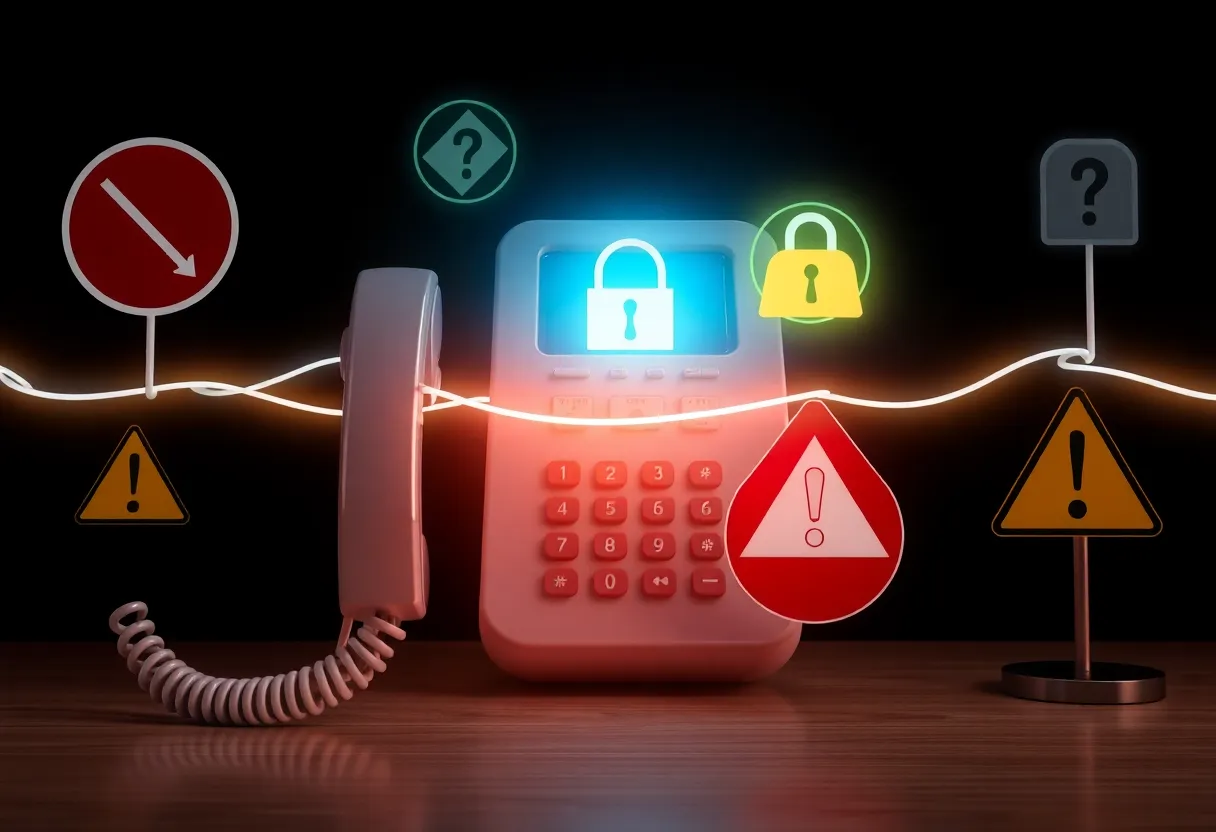News Summary
Carol Smith, a Jacksonville widow, discovered that scammers hijacked her home phone number and attempted to steal her late husband’s identity. This incident, classified as port-out fraud, involved unauthorized transfers and requests for cash advances from her bank accounts. After experiencing significant emotional distress, Smith criticized AT&T for the lack of security measures that allowed her number to be compromised. The company has since confirmed they are working with law enforcement to address unauthorized transfers and enhance their security protocols.
Jacksonville Widow Exposes Port-Out Fraud After Scammers Hijack Her Late Husband’s Identity
A Jacksonville widow, Carol Smith, is alerting the public after her home phone number was hijacked by scammers, leading to a fraudulent attempt to steal her late husband’s identity. The incident involved a request for a cash advance totaling $2,000 from one of her bank accounts.
On April 1, 2025, Smith discovered her landline phone was no longer operational, with a complete lack of a dial tone. Upon contacting her phone service provider, AT&T, she learned that her number had been transferred to another phone company without her consent. This phone number had been in her possession for three decades.
AT&T informed Smith that her account had been closed on March 31, the day before she lost access. This incident falls under the category of port-out fraud, where scammers provide personal information to convince telephone companies that they are the legitimate owners of the number. As a result, scammers were able to impersonate her deceased husband, applying for new credit cards and attempting to transfer money.
Additionally, Smith began receiving emails from credit card companies indicating suspicious activity. The communications claimed these companies had spoken with her regarding her accounts, which she had not done. In response to the fraudulent activities, Smith spent many hours contacting banks and credit card companies, even having to send her husband’s death certificate as evidence of the fraud.
Feeling violated and paranoid following the identity theft, Smith expressed concern over the ease with which her number had been compromised. AT&T acknowledged that there have been a small number of unauthorized number transfers in the Jacksonville area and stated they are collaborating with law enforcement to retrieve the hijacked numbers. The company reaffirmed its commitment to improving security measures designed to prevent similar crimes from occurring in the future.
Preventive Measures Against Phone Number Fraud
Experts advise several measures to help individuals protect themselves from similar scams:
- Add a PIN to phone accounts to enhance security.
- Set up alerts for any changes to financial accounts.
- Freeze credit for both oneself and deceased loved ones.
- Limit the amount of personal information shared on social media platforms.
Smith voiced criticism regarding AT&T’s lack of transparency on how her number was authorized for transfer without her knowledge. This troubling incident underscores the reality that phone numbers serve as digital keys to personal identities, potentially opening the door to significant fraud when they are compromised.
As this case illustrates, individuals must remain vigilant and proactive in safeguarding their personal information, particularly in a digital age where identity theft is prevalent. The repercussions of such scams can be severe, highlighting the importance of understanding and implementing protective strategies.
Deeper Dive: News & Info About This Topic
HERE Resources
Escalating Scams Targeting Florida Residents
Florida Attorney General Takes Action Against Spa Owners
Jacksonville Residents Warned About Toll Payment Scam Texts
Additional Resources
- First Coast News: Jacksonville Widow Exposes Port-Out Fraud
- News4JAX: Jacksonville Woman Warns Public About Jury Duty Scam
- My Journal Courier: Smishing Scam Hits Jacksonville Area
- Jacksonville.com: $4 Million COVID-Medicare Scam
- Action News JAX: Neighbors Sound Alarm Over Holiday Ticket Scam
- Wikipedia: Identity Theft
- Google Search: Identity Theft Prevention
- Google Scholar: Identity Theft Research
- Encyclopedia Britannica: Identity Theft
- Google News: Identity Theft News
Author: STAFF HERE JACKSONVILLE WRITER
The JACKSONVILLE STAFF WRITER represents the experienced team at HEREJacksonville.com, your go-to source for actionable local news and information in Jacksonville, Duval County, and beyond. Specializing in "news you can use," we cover essential topics like product reviews for personal and business needs, local business directories, politics, real estate trends, neighborhood insights, and state news affecting the area—with deep expertise drawn from years of dedicated reporting and strong community input, including local press releases and business updates. We deliver top reporting on high-value events such as the Jacksonville Jazz Festival, Riverside Arts Market, and World of Nations Celebration. Our coverage extends to key organizations like the Jacksonville Chamber of Commerce and JAXUSA Partnership, plus leading businesses in logistics, healthcare, and entertainment that power the local economy such as CSX Corporation, Baptist Health, and VyStar Credit Union. As part of the broader HERE network, including HEREOrlando.com, HEREStPetersburg.com, HERETallahassee.com, and HERETampa.com, we provide comprehensive, credible insights into Florida's dynamic landscape.






